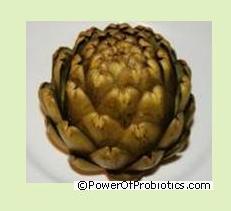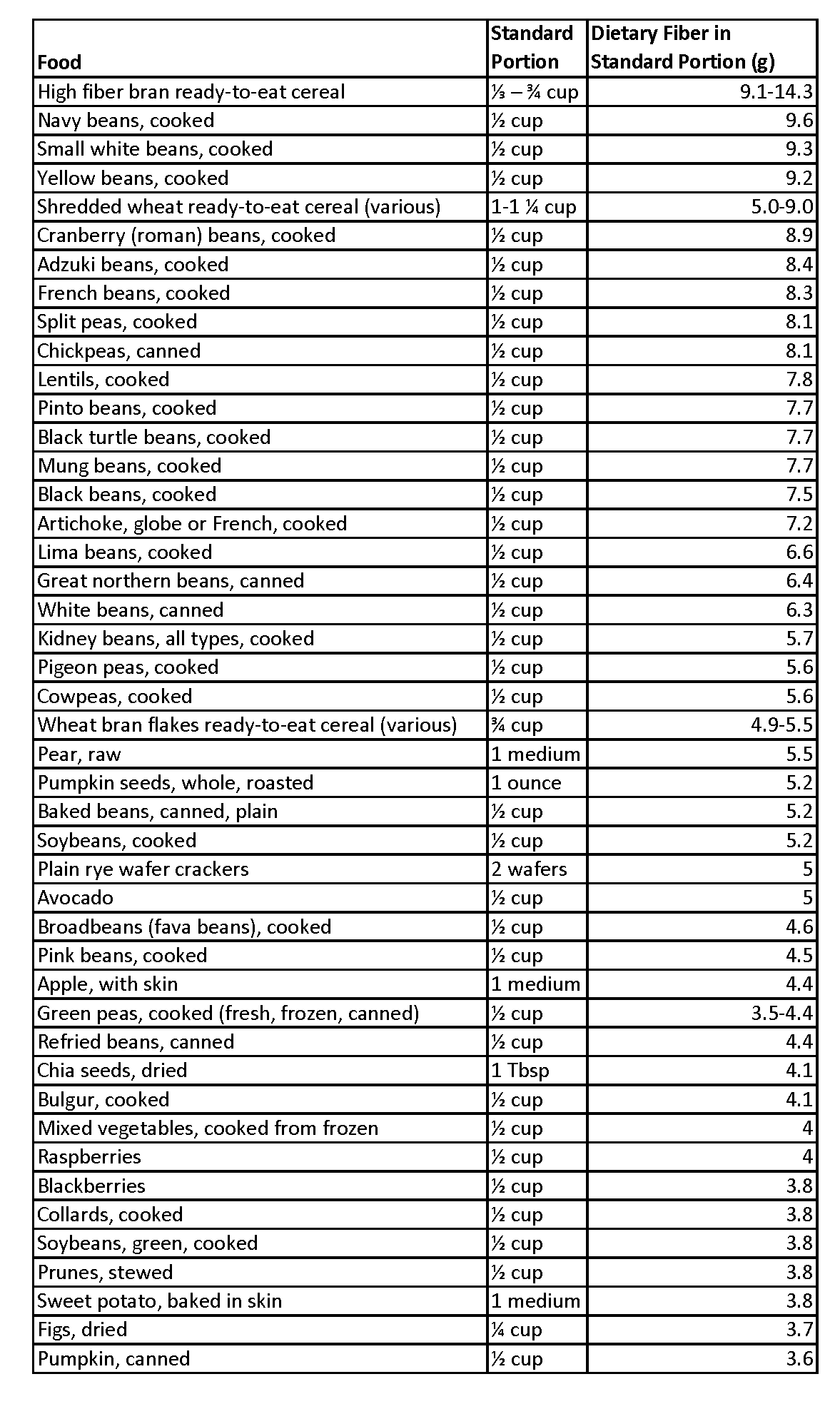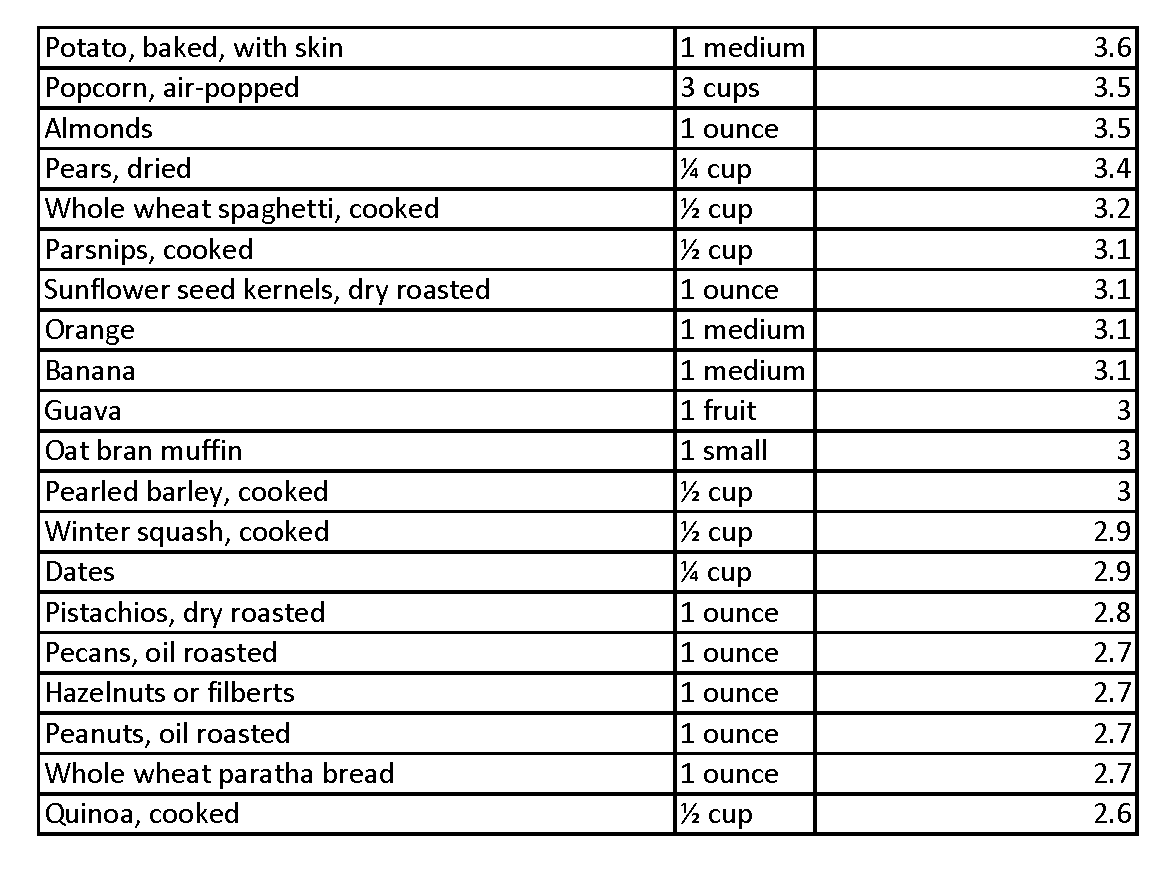Fiber is Critical to Your Health
 |
Dietary fiber, or fibre, is the non-digestible form of carbohydrate found in plant foods. Some people call it "roughage" or "bulk". Fruits, vegetables, whole grains, beans, lentils, peas, nuts and seeds are all good sources. |
While supplements can provide sources of this nutrient, supplements alone only offer one or a few types of roughage and lack vitamins, minerals and beneficial compounds found in plants. Additionally, many supplements only deliver 0.5 mg per caplet or 3 grams per rounded teaspoon, but include harmful ingredients such as artificial colors, artificial flavors, artificial sweeteners and sodium lauryl sulfate.
There are many types of fibre, from the basic soluble and insoluble distinctions, to more specific natural and human-enhanced sub-types. Some of the natural ones make up the plant cell wall, while others are found inside the plant cell.
This page will focus on roughage in general terms, because there is no need to confuse yourself with the details of the different types before you understand the basic importance of it. The basic importance is very important! I plan on writing pages in the future on the specific types and what research shows about them.
Roughage is known to be good for many things in the body. For example, it can:
- Soften and add bulk to stool (if taken with enough water throughout the day), thus promoting normal bowel elimination and reducing constipation.
- Increase satiety, the feeling of being satisfied with your food intake. This can help with weight management.
- Lower cholesterol by binding to it and carrying it out of the body, among other mechanisms
- Bind to potentially cancer-causing compounds and escort them out of the body in stool
- Help improve blood sugar regulation in people with diabetes.
What Could Be the Most Important Benefit
One of the most important functions of roughage, which is often not reported, is to feed the microbes in your gastrointestinal (GI) tract. In turn, the microbes produce various short-chain fatty acids to enhance your health.
What you may not realize, however, is that if you do not consume sufficient roughage, the microbes feed on part of YOU. If not provided with enough roughage and other nutrients, some gut microbes feed on the protective mucus layer lining your mucous membranes, such as your GI tract. Their voracious appetites gobble up mucus faster than you can produce it and tip the balance of your microbiome. Not only does this injure your membranes by removing the moisture barrier, but it increases the accessibility of pathogens to intestinal tissues, possibly promoting diseases such as colitis.
Such an occurrence was evident in a study by Desai et al. in 2016 on mice that were colonized with a synthetic human gut microbiota. When the mice were deprived of roughage either consistently or intermittently, the gut microbiota started feeding on mucus. This caused the mucus to decrease, and a rodent pathogen gained access to intestinal tissues and caused lethal colitis.
Recommended Intake and Sources of Fiber
The US and Canadian governmental recommendations for intake are 25 grams per day for women and 38 grams per day for men. Sadly, most Americans and residents of other industrialized nations get only about 15-16 grams per day because their focus is on processed foodstuffs. That means that their beneficial microbes are not getting sufficient nutrition and the mucus-degrading ones are chomping away and gaining access to tissues they should not be able to access.
You MUST increase your intake of bulk-containing foods to prevent this from happening and to reap all the benefits that unprocessed plant foods and their fibrous compounds can provide. Studies show that your gut microbes need the beneficial plant compounds, the polyphenols, in addition to the plants' fibrous compounds in order to thrive. A good example of the prebiotic effect of polyphenols concerns cacao/cocoa.
What you must do to increase your intake is to eat more real, whole foods. Below is a table of foods from the USDA that have the most roughage per serving. You can see that many of the top foods are beans (pulses, legumes) or seeds, but even a strict Paleo diet can be filled with nutritious, fibrous foods.
  |
Return to whole food page.
Return to Homepage.
I research studies and share my clinical experience to write this free site to help you find solutions to your problems. As part of that, I recommend products and services that I genuinely believe will be of help to you. If you click on a link to a product/service, I may receive a small commission to support my efforts if you buy something. The item does not cost you more.
Thanks for visiting this site! If you've enjoyed reading this page or have found the information to be useful to you, please "like", tweet about it, or share it so others can benefit, too. You can leave comments below via Facebook or Disqus.
Comment with Disqus (including as a guest), Twitter or Google accounts:
If you are one of my many readers without a Facebook account, you can still comment.
Disclaimer: Please note: By law, I cannot provide any personalized recommendations for your specific health concern on this site. The information contained in this site is educational in nature and is not intended as diagnosis, treatment, prescription or cure for any physical or mental disease, nor is it intended as a substitute for regular medical care. Consult with your doctor regarding any health or medical concerns you may have.
Subscribe to my occasional newsletter and receive a free copy of "How to Use Probiotics to Lose Weight and Be Healthier".

To comply with the EU's GDPR data privacy regulation, please subscribe here:
Looking for some quality professional supplements, including probiotics? Check out my online dispensary, as I will be doing reviews of some of these products in the future. Click on the Fullscript picture. (Note: If you were a former Wellevate customer, please switch to Fullscript for a better customer experience. Thanks!)
Some competitors of SBI (Solo Build It) are posting fake negative reviews of SBI. If you are considering creating your own website business, or if you have a brick-and-mortar business but want an online presence, I highly recommend SBI!





Comment with Facebook!
I'd love to hear your opinion about what you just read. Leave me a comment in the box below! Other commenting options follow the Facebook comments.